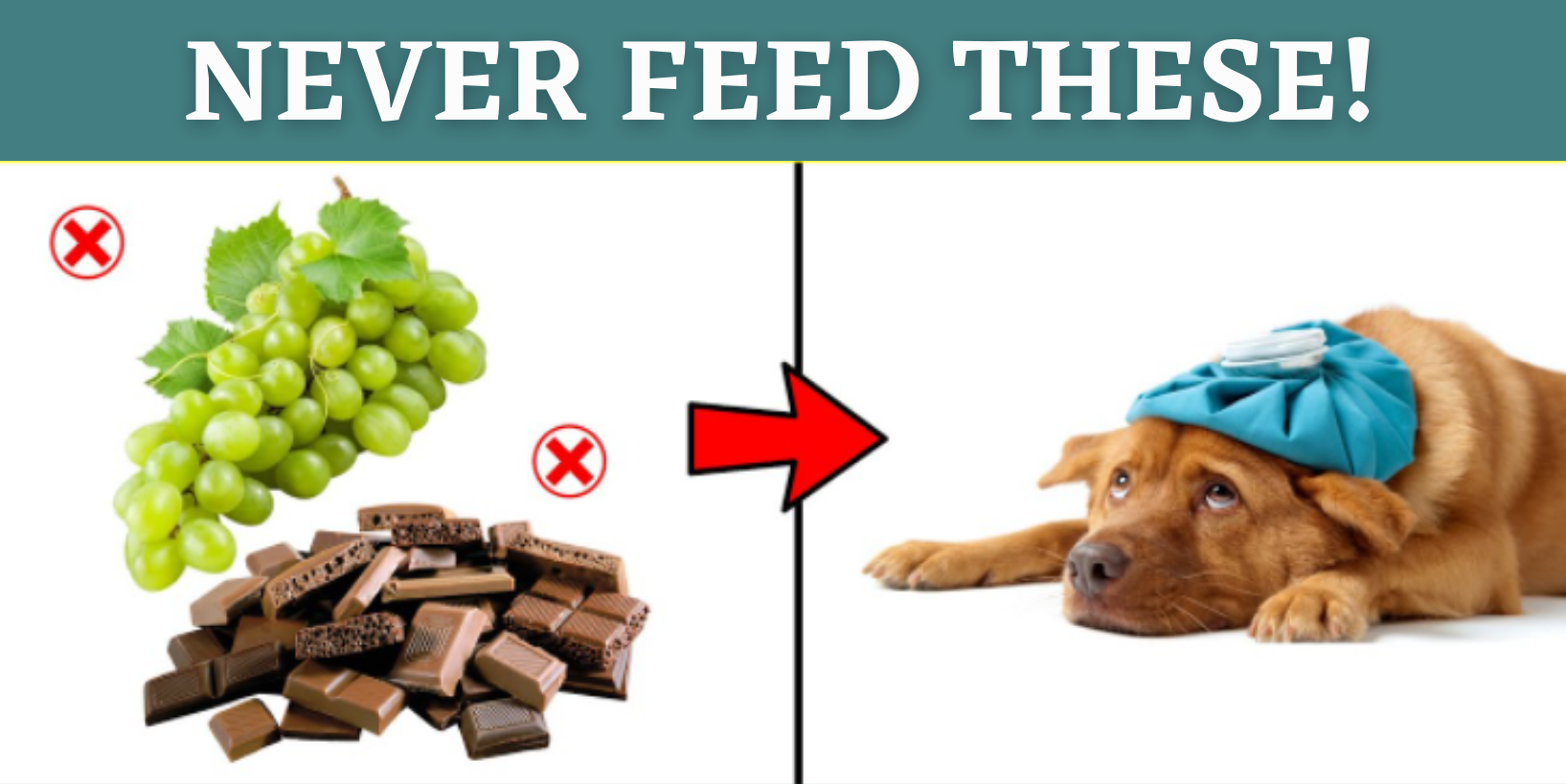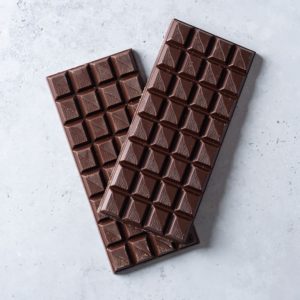
When it comes to leftover food, dogs will often dive straight in without a second thought – but what human foods are safe for dogs to eat and which fruit, vegetables and sweet treats are dangerous or toxic for our dogs?
Making sure your dog has a healthy and balanced diet, combined with the appropriate amount of exercise for their breed, is really important. It helps them maintain strong bones, healthy digestive systems and happy hearts.
Resist those “puppy dog eyes” when it comes to these human delights because…

Chocolate contains theobromine which dogs are unable to digest. The darker the chocolate, the more theobromine it contains. Dog owners should be particularly careful around Easter and Christmas when there is likely to be a lot of chocolate lying around the house. Here is our alternative, low fat Homemade Christmas Pudding Dog Treat.
Xylitol is a common ingredient used to replace sugar and is commonly found in chewing gum and sweets. It is also used as a food additive. Xylitol can cause insulin release, hypoglycaemia, comas, liver damage and blood clotting disorders in dogs.

Though delicious to us humans, both garlic and onions can cause gastrointestinal upset and red blood cell damage in dogs. Signs can be delayed and only become apparent a few days following ingestion.
These small, dried morsels can cause liver and kidney damage in dogs. Although their toxicity levels are unknown, dog owners should always avoid letting their dog near them.
Never let your dog rummage through a bin or compost heap where they might come into contact with mould. Some moulds contain harmful spores that not only cause stomach upset but also, if inhaled whilst eating, can cause lung damage and breathing difficulties.
Giving dogs scraps from the table is often something people love to do, however feeding fatty trims of meat or overly rich foods that dogs are not used to eating can cause pancreatitis, a painful condition that often requires hospitalisation and lifelong dietary management.
Feeding raw egg whites can affect biotin levels (Vitamin B7 which is important in the maintenance of keratinised structures such as the skin and hair) as they contain a binder called avidin. If eggs are to form part of the daily diet, they should be cooked.
Raw bones often make a great treat for raw fed dogs but cooked, steamed and dried bones can splinter and cause damage to the mouth, stomach and intestines. If you choose to feed raw bones, do your research first on the most appropriate option for your dog.
Raw, roasted or contained within other foods, macadamia nuts can cause vomiting, weakness, depression, tremors and an increase in body temperature.
A common sight in summer time at BBQs, but whilst the left over cobs can make a lovely chewy snack for dogs, they are often swallowed whole causing serious intestinal blockage which requires surgery to remove.
Share this post with your friends and family

Join our email list to stay up-to-date about the latest products and offers, plus get
10% OFF
your first purchase.
By submitting, you agree to receive marketing emails for information on news, promotions, and offers from WildWash. For more details see our Terms & Conditions and Privacy Policy. You can unsubscribe at anytime.
